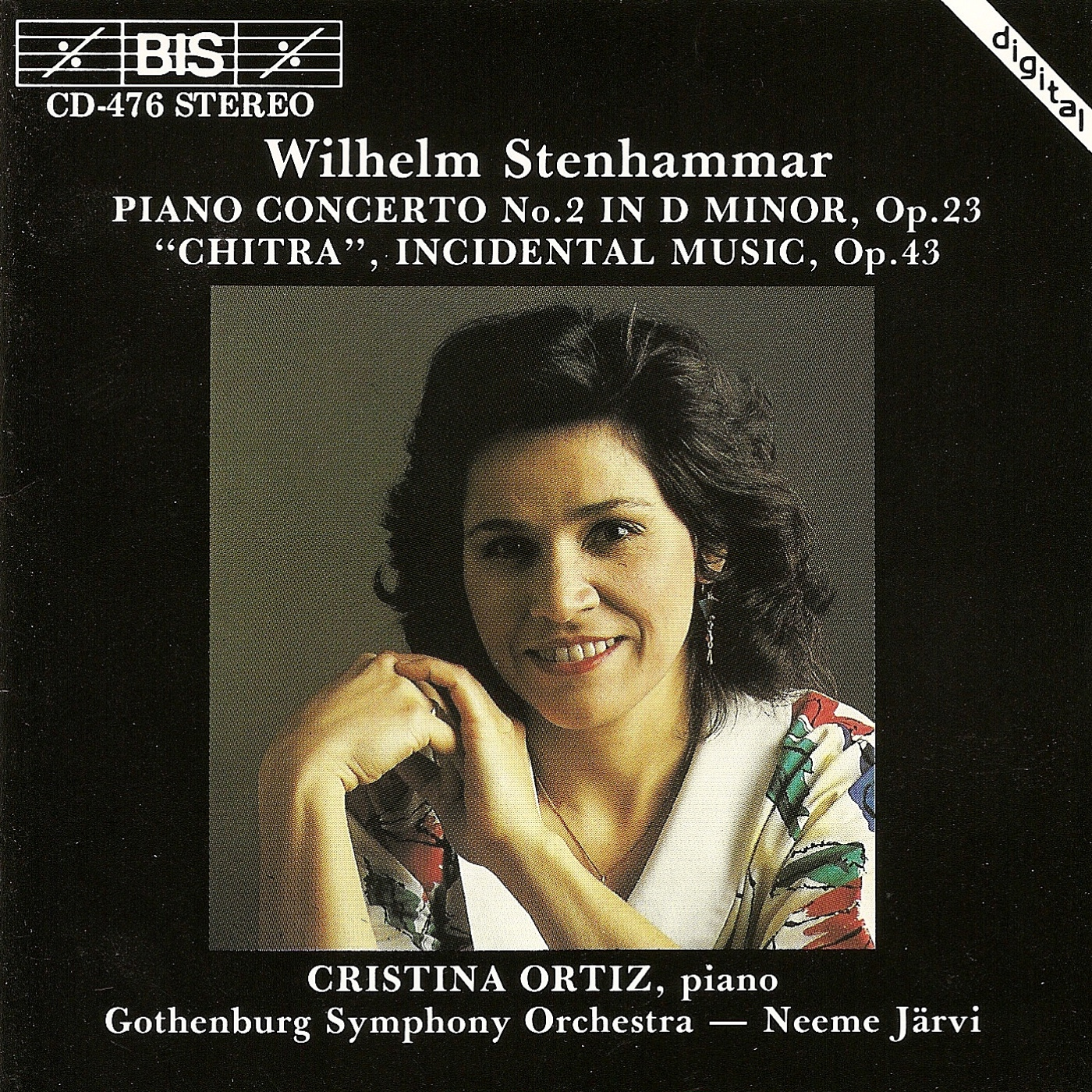Stenhammar: Piano Concertos 1 & 2
I like when a Concerto offers a dialog.
Stenhammar's Piano Concerto no. 2 in D minor, is an excellent example of a concerto where there is give-and-take between soloist and orchestra.
As mentioned at the top, I like when there is a musical argument between the two forces. This aspect appears right at the outset, and continues throughout, with a tit-for-tat between piano and orchestra, almost in a confrontational manner.
It probably helps that Stenhammar sets the work in a minor key, but even moreso, he makes the work sound cranky and surly, with an antagonistic essence between the performers. It really is an effective work altogether.
The opening movement bears a lot of time for the piano to stew in its juices all on its own, later on for the orchestra alone as well, and I think this is part of what sets it apart from its partner initially. There is a joyful coming together between piano and orchestra which builds gradually within the last two movements, and oh what a wonder it would be to hear the work in concert! The work is surprisingly set without any breaks, so there is an overarching, natural progression throughout the music too, without feeling segmented or containing disparate parts.
Before I get too far, Stenhammar's Piano Concerto no. 1 in B-flat minor, at over 45 minutes, is really long, especially compared to No. 2's 28 minutes. With the exception of a very short, and upbeat 2nd movement, each section times well over 10 minutes each, and you really feel its length. It doesn't help when Stenhammar scores the finale as rather introspective at times, although some might consider this a fresh ending effect, not often used by composers.
It is too bad, because I find the music so likeable. Akin to Stenhammar's Symphony no. 1 in F Major, the main influence in the First Piano Concerto is Brahms, with obvious nods to Bruckner and Wagner. There are splendid musical ideas throughout, and its structure, while conservative, support Stenhammar's motives and developments effectively.
But, putting both works together, you can feel the direct attitude and succinctness of the Second Piano Concerto as his most ideal statement in the genre. This means Stenhammar puts late-Romanticism at bay and laser focuses the music without any excess or needless noodling.
Compared to the symphonies, these two Stenhammar Piano Concertos have received a fair amount of recordings. Of the two paired together on the same recording, Naxos is by far the fastest, which might actually help the first Concerto, whereas Manze on Hyperion take the opposite approach. Both Dutoit and Rozhdestvensky cover Concerto 1 on its own. Concerto 2 is much more more popular, and exists by itself on a few EMI recordings.
I used the old BIS set to refresh my mind on these works, since I am going through that set anyways. While both Concertos were originally issued separately (and pictured here), they were later boxed together with the Symphonies and orchestral works from the Järvis. Both pianists Love Derwinger (in No. 1) and Cristina Ortiz (in No. 2) are excellent and offer a middle ground between the Naxos and Hyperion recordings of both Concertos.
Work
Piano Concerto 1 in B-flat minor
I. Molto Moderato (15.25)
II. Vivacissimo (4.43)
III. Andante (11.27)
IV. Allegro (13.51)
Piano Concerto 2 in D minor
I. Introduction (9.28)
II. Scherzo (6.42)
III. Adagio (5.50)
IV. Finale (6.42)
Soloists
Love Derwinger, piano
Cristina Ortiz, piano
Performers
Malmö Symphony Orchestra
Paavo Järvi, conductor
Gothenburg Symphony Orchestra
Neeme Järvi, conductor
Label: BIS
Year: 1989 & 1992
Total Timing: 75.34
Find more Stenhammar recordings HERE!


Comments
Post a Comment